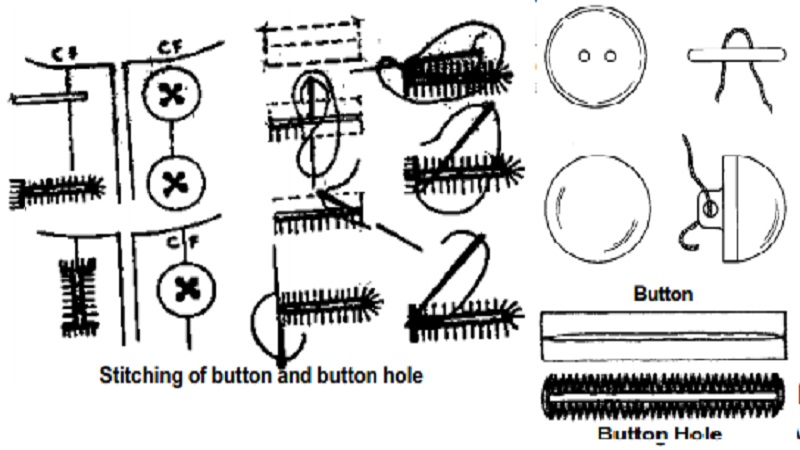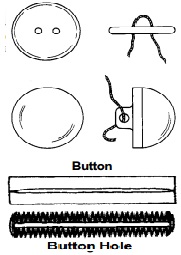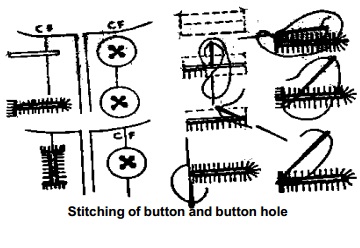Chapter: 11th 12th std standard Textiles And Dress Designing Cloth stitch Higher secondary school College practical steps methods Notes
Buttons and Buttonholes

Buttons and Buttonholes:
These are functional as well as decorative. Contrasting color or self
colored buttons can be used. Buttonholes are slits cut in garments to hold the
buttons in place. The raw edges of the slits are finished with buttonhole
stitches.
a. Buttons:
Buttons should be selected to suit the
color, design and texture of the fabric and also the style of the garment. Two
types-shank buttons and buttons with holes are most commonly used. Button maybe
made of self fabrics, bone, glass, metal, plastics etc. Place overlap over the
under lap so that the centre front line coincides. Insert a pin through the gap
of the buttonhole. Now lift the overlap and mark the position of button on the
pin mark. Sew button using the double thread bringing the needle up and down
through the holes. After working enough stitches bring the thread to the wrong
side of the fabric and insert it into the previous Button thread forming a
small knot. Buttons with 4 holes may be sewn in the shape of a cross, two
parallel lines, a square or an arrow head.

b. Button holes:
Buttonholes should be worked on the
overlap before the buttons are fixed. They may be placed vertically or
horizontally on the garment. Whether the buttonhole is vertical or horizontal,
buttons are placed exactly on the centre front line. The allowance of the
material beyond the center front line should be at least ½' or half the
diameter of button used. The length of the buttonhole should be the diameter of
the button plus 1/8' (or the thickness of the button).

Related Topics